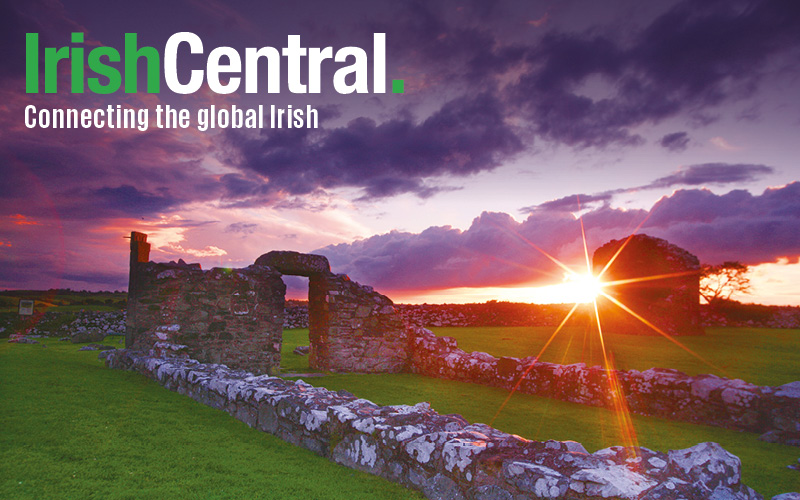Brexit and its implications are forming the centerpiece for Irish Foreign Minister Charlie Flanagan’s visit to New York which opens today with a keynote speech on the issue at Fordham University.
Mr. Flanagan is in New York for the opening session of the United Nations General Assembly, but the more typical range of issues in Flanagan’s address to the world body, and in a serious of bilateral meetings with other foreign ministers, is being significantly augmented by the fallout from the UK’s decision, by means of a referendum, to leave the European Union.
During his visit, according to a Department of Foreign Affairs release, Minister Flanagan will address the United Nations General Assembly and meet with UN Secretary General, Ban Ki-moon.
Flanagan will also undertake a series of bilateral meetings with foreign ministers from around the world at the General Assembly, as well as participating in an Enterprise Ireland trade event, deliver the aforementioned keynote address at Fordham, and also meeting members of the Irish community.
The Fordham address is headed “Ireland and the European Union in Changing Times” and Mr. Flanagan will deliver it at the university’s School of Law.
In his address, the minister will underline that Ireland is “wholeheartedly committed to our membership of the European Union and of the Eurozone” and will also emphasize the “attractive environment” that Ireland offers U.S. investors.
Min @CharlieFlanagan today addressed Irish & Irish-American community and business figures in NYC @IrelandInNY pic.twitter.com/cugNXkGWEk
— IrishForeignMinistry (@dfatirl) September 19, 2016
Mr. Flanagan signaled the tenor of his message on Brexit with an op-ed today in the Huffington Post.
He wrote in part: “On 23 June, the electorate in the United Kingdom voted to leave the European Union. This was a very significant decision, the first ever exit vote by a member state, one of the EU’s largest. The exit process will take some years to complete and will represent an enormous legal and political challenge for all concerned. It is something we need to get right.
“The Irish government, like the U.S. administration, was convinced that the best outcome to the referendum would have been a strong UK remaining within a strong EU. But we were as prepared as we could be for a different result.
“Our goal now is to work together to strengthen the European Union while ensuring as close a relationship as possible between the UK and EU.
“The final settlement will be one agreed between the UK on the one hand and an EU of 27 member states, including Ireland on the other. It was therefore clear to us that it is important that Ireland’s unique circumstances are well understood in the capitals of Europe.
“My message to U.S. investors is: Ireland will continue to serve as a gateway to the EU – we offer an English-speaking, business-friendly, competitive environment. We have a track record in innovation, and most of all, a highly-educated and talented workforce. Our economy is growing steadily. We are open for business!
“Negotiations will begin once the UK government decides to trigger “Article 50.” This is expected to happen early next year. In these negotiations, Ireland’s focus will be on: Northern Ireland and the peace process; retaining the open border with Northern Ireland and preserving the historic Common Travel Area between Ireland and Britain; our close bilateral economic and trade relationship with the UK; and our commitment to a strong European Union.
“While the peace settlement in Northern Ireland is by now well-established, we cannot afford to be complacent. Ongoing work is required to protect and preserve what has been achieved since the Good Friday Agreement of 1998, which was brokered with invaluable help from the United States.
“In this environment, Brexit presents a new and substantial challenge for Northern Ireland. In the referendum, 56% of the Northern Ireland electorate voted to remain in the European Union. Many are understandably concerned that leaving the EU would have implications for political stability, reconciliation and prosperity.
Read more: Brexit has utterly changed the relationship between Ireland and the UK
“We must be in the business of solutions as we face these challenges and thus the dialogue is firmly underway – between Belfast and Dublin, between London and Dublin and with our EU partners. Voices from the U.S., as ever before in relation to Northern Ireland, will be welcome and valuable too in the months and years ahead.
“Ireland and Britain have long and intertwined histories.
“As next door neighbors we engage in a great deal of trade together: each week over €1.2 billion of goods and services is exchanged between the two islands. However, Ireland’s trade dependence on the UK is very different compared to when both countries joined the then EEC in 1973.
“Today, the United States is overtaking the UK as Ireland’s largest trading partner while the Eurozone economies now account for twice the goods trade we enjoy with the UK. We continue to expand on a global scale, across North America and also in Asia and elsewhere.
“A diversified Irish economy is better positioned, therefore, to meet the trade challenges around Brexit while seeking to maintain the strong flow of goods and services, both North and South on the island of Ireland and between Ireland and Britain.
“Make no mistake, then, Brexit is a challenge to all - not least ourselves in Ireland. But Ireland and its people recovered with determination from the severe setback of the 2008 economic crisis, and we have rebuilt an open, dynamic and competitive economy.
“700 .U.S companies have made Ireland their home and employ 140,000 people between them. We will continue to promote Ireland as an attractive location for mobile international investment and for talented people, because those things continue to be constant, regardless of the UK’s decision to leave the European Union.”
An op-ed by Minister @CharlieFlanagan on #Brexit ahead of his address today at @FordhamLawNYC. Via @HuffingtonPost: https://t.co/1JLYeTGUc4
— Fordham University (@fordhamnotes) September 19, 2016
Read more: A United Ireland after Brexit is a fantasy




Comments